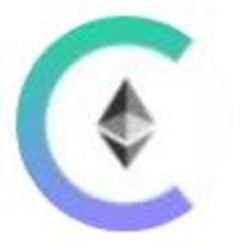Small esports tournament organizers have started dabbling in blockchain tech to host tournaments and distribute prize pools. However, don’t expect to see it in the big leagues just yet, says an investor.
Esports, or electronic sports, is a form of organized competition via video games. Players sometimes referred to as esports athletes usually compete for prize money either individually or as a team.
Dave Harris, managing director of esports investment firm Guinevere Capital, told Cointelegraph that he has begun seeing blockchain being used in amateur gaming competitions.
In his opinion, however, it will take more time before the big titles and professional tournaments will consider adopting the tech.
“There are certainly a lot of places this technology can or is being used in esports, but it will take time for mass adoption into the mainstream titles and events, and as always the major game publishers are the kingmakers,” he said.
Ivy Fung, general manager at the Esports Players League (ESPL), says she believes blockchain technology is a strong fit when it comes to distributing prize pools.

The Singapore-based company operates a blockchain-powered platform distributing prize money through digital assets like nonfungible tokens (NFTs) and crypto tokens directly into winners’ digital wallets.
According to Fung, the use of blockchain makes the distribution of the prize pool far easier because it bypasses barriers such as cross-border transfer fees charged by traditional banks.
“When you’re talking about a global tournament, you need an effective way to distribute the prize pool so you don’t have to wait for the winner to give us their bank account and then verify and all these things.”
The prizes are, however, nowhere near those of international esport tournaments, which can be in the millions of dollars.
Harris believes that blockchain and Web3 have a vital part to play in esports but thinks that future developments will need to look outside the box to really attract mainstream attention.
“There may be more efficient ways of using this technology to track and display results, but I’m not sure this is really going to shift the dial,” he said.
We’re excited to announce we’ve collaborated with @AuroryProject to create our first collection of NFTs!
To celebrate we’re giving away one of our exclusive Aurorians, which has multiple functions both in and out of the Aurory Game!
Enter now ➝ https://t.co/j1FxdwxVNB pic.twitter.com/PuqMQxu33T
— TSM #TSM100 (@TSM) October 1, 2021
“I think a model that allows user-generated content to be commercialized and revenue fairly distributed amongst all stakeholders is an opportunity for the industry,” he added.
Related: NFT gaming trends in 2023: Industry execs expect more big players to jump in
Gaming enthusiasts have had a love-hate relationship with crypto, particularly when NFTs are involved.
An October survey from Coda Labs found traditional gamers weren’t a fan of cryptocurrencies or NFTs, rating their feeling at 4.5 and 4.3 out of 10 respectively.
French gaming giant Ubisoft Entertainment was slammed last year over its NFT project Quartz, forcing the company to later backpedal on plans to integrate NFTs into its games.
Despite this, Harris said that ultimately, the tech will benefit gamers, stating:
“In principle, ‘actually owning’ in-game items and potentially being able to transfer them to other games or environments is a good proposition for gamers.”
“The actual technology will be used more and more in the future, but I think there is currently skepticism and in some cases pushback from the community where the tech to date has often manifested in what they see as over-commercialization or get-rich-quick schemes,” he added.
“I think the learning curve is definitely there,” said Fung.
“There will definitely be people who go against it, but as long as we can show them the benefits of using this system, I think they will adopt it sooner or later. That will be the norm. Everybody will be using it,” she added.
The total market value of the esports industry is forecast to reach $1.62 billion in 2024, according to data released by Exploding Topics.




























